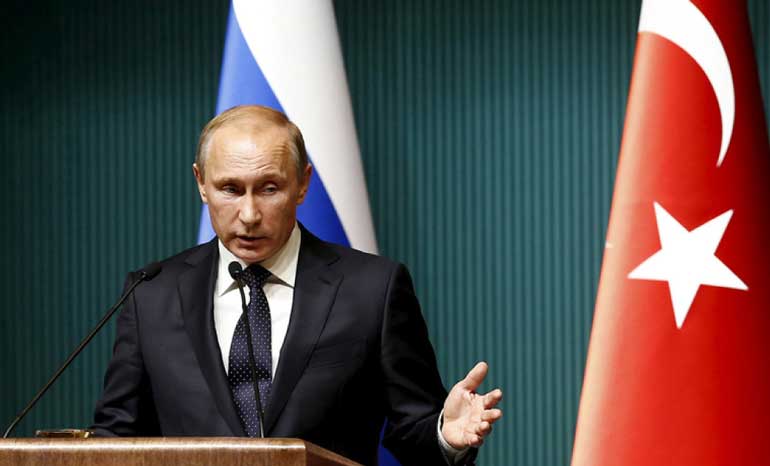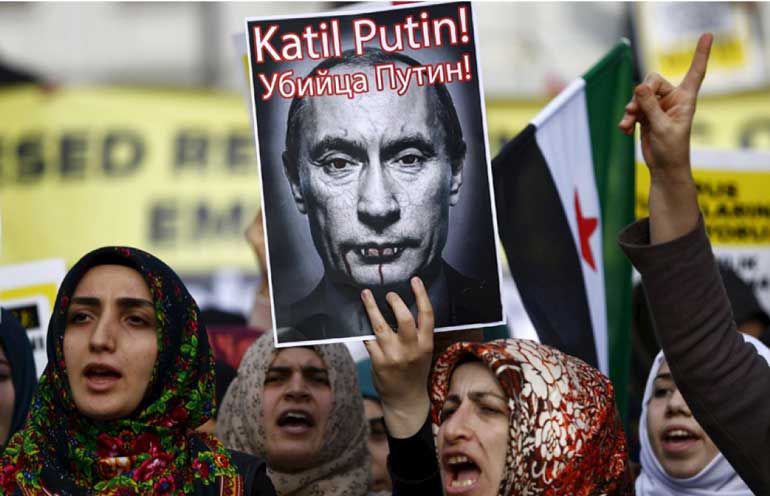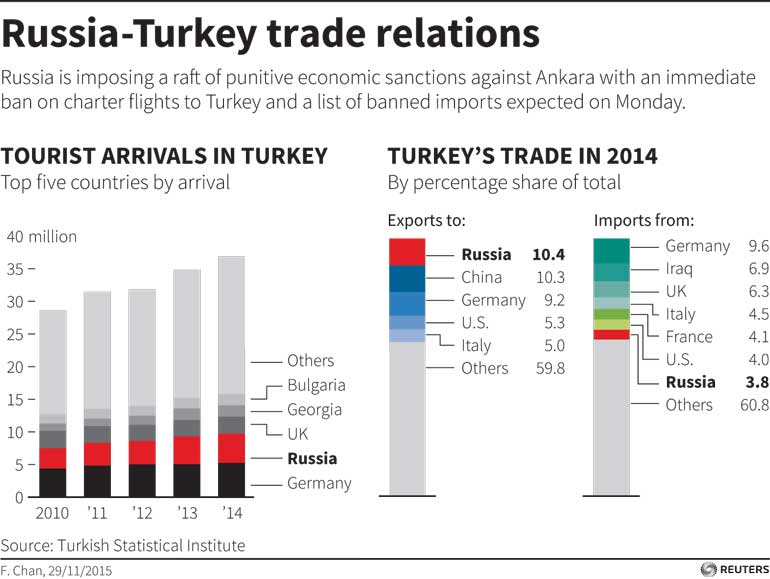Friday Feb 20, 2026
Friday Feb 20, 2026
Monday, 30 November 2015 00:00 - - {{hitsCtrl.values.hits}}

Russian President Vladimir Putin attends a news conference at the Presidential Palace in Ankara, Turkey in this December 1, 2014 file photo. Putin signed a decree imposing economic sanctions against Turkey on Saturday, four days after Turkey shot down a Russian warplane near the Syrian-Turkish border. REUTERS

Pro-Islamist demonstrators, holding a defaced poster of Russia’s President Vladimir Putin, shout slogans during an anti-Russian protest in Istanbul, Turkey November 27, 2015. A slogan in Turkish and Russian on the poster reads as “Killer Putin!” REUTERS 
AFP (Moscow): Russian President Vladimir Putin on 28 November signed a decree adopting a series of retaliatory economic measures against Turkey over the downing of a Russian warplane on the Syrian border.
The sanctions are “aimed at ensuring national security and that of Russian citizens” and included a ban on charter flights between the two countries and on Russian businesses hiring any new Turkish nationals as well as import restrictions on certain Turkish goods, according to a text of the decree released by the Kremlin.
Earlier, Turkish President Recep Tayyip Erdogan had expressed “sadness” over an incident which has severely strained relations, saying that “we wish it had never happened.”
The new measures come into effect from Jan 1, according to the decree which adds that “organisations under Turkish jurisdiction” will also find their ability to operate in Russian curtailed.
Furthermore, certain types of goods from the Turkish republic will be subject to “bans or limitations”. The list of affected goods has not yet been made public.
The Kremlin’s press service said Putin had also instructed the government to “define a list of goods and services to which the economic measures against (Ankara) do not apply.”
It added that alongside “measures banning charter traffic between Russia and Turkey” Putin urged Russian tour operators to “refrain from proposing products to Russian citizens involving a visit to Turkish territory.” In addition, Turkish airlines will have to undergo increased controls in Russia “for security reasons.”
The decree also officially confirms that Turks will have to apply for visas to visit Russia, a move which Foreign Minister Sergei Lavrov had announced Friday. Tuesday’s downing of a Sukhoi 24 jet on the border with Syria on Tuesday has caused a crisis in bilateral relations.
NATO member Turkey blasted the Russian jet out of the sky after claiming it crossed into its airspace and ignored several warnings to change course, but Putin furiously denied the claims and demanded an apology which Erdogan has rejected.
Putin, whose government supports the government of Syrian President Bashar al-Assad whereas Ankara backs rebels fighting to topple him, described the incident as a “stab in the back committed by accomplices of terrorists.”